 The music, performing and visual arts sector (including theatre), is now worth £5.4 billion a year in contributing to the UK economy, new figures from the Department for Culture, Media and Sport have revealed. It is clear here that performing arts have a huge value for the UK as a whole, let alone every individual which engages with the arts. The statistics are part of a wider analysis of the creative industries, which now contribute £76.9 billion to the UK economy.
The music, performing and visual arts sector (including theatre), is now worth £5.4 billion a year in contributing to the UK economy, new figures from the Department for Culture, Media and Sport have revealed. It is clear here that performing arts have a huge value for the UK as a whole, let alone every individual which engages with the arts. The statistics are part of a wider analysis of the creative industries, which now contribute £76.9 billion to the UK economy.
The contribution is a growth of almost 10% from 2012 to 2013, which is the most recent year available to reference. The 10% increase is three times that of the wider UK economy during the same period, demonstrating how vital the arts are, not just culturally but socially too. Music, performing and visual arts, one of nine sectors included as part of the creative industries, showed a 19% increase on 2012. The new figures also show a 46% increase in the music and performing arts sector since 2008.
Secretary of state for culture, Sajid Javid, has acknowledged the contribution of the creative industries to the wider UK economy as being evident to all, and it is hoped his influence is spread wide across the UK government. The creative industries are perhaps “one of our most powerful tools in driving growth”, remarked Javid, engaging young children and sparking an interest in them. Javid also maintained that the “government is determined to continue its support for this most dynamic of sectors as part of our long-terms economic plan, [and] children’s TV and orchestras have been instrumental in attracting inward investment”.
In terms of UK employment, the creative industries accounted for 1.7 million jobs in 2013, which is 5.6% of total UK jobs and an increase of 1.4% on the previous year. Here we can clearly see the value of the arts which continues to increase.

 The Royal Ballet School has launched Inspire, a series of six seminars for classical ballet teachers starting in May 2015. Held across the UK, the inspiring events will support continued professional development and networking for dance professionals from all teaching backgrounds and societies, devised and delivered by the School. The seminars will explore good teaching practice and the foundations of classical ballet technique (non-syllabus based).
The Royal Ballet School has launched Inspire, a series of six seminars for classical ballet teachers starting in May 2015. Held across the UK, the inspiring events will support continued professional development and networking for dance professionals from all teaching backgrounds and societies, devised and delivered by the School. The seminars will explore good teaching practice and the foundations of classical ballet technique (non-syllabus based).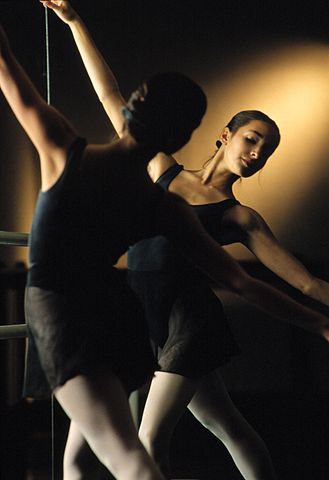 Do you want to take your dancing to a professional level? As glamorous as it may seem, the life of a performer is a lot of hard work, pain and strict dedication to the goal. If you still wish to pursue a career in dance you must strive for it completely, as it requires a lot of passion and hard graft.
Do you want to take your dancing to a professional level? As glamorous as it may seem, the life of a performer is a lot of hard work, pain and strict dedication to the goal. If you still wish to pursue a career in dance you must strive for it completely, as it requires a lot of passion and hard graft.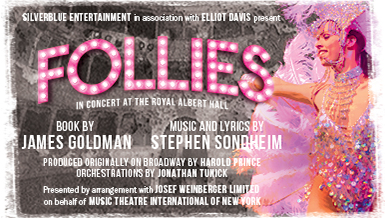 Christine Baranski, Russell Watson and Ruthie Henshall are set to star in a concert production of Stephen Sondheim’s musical Follies at the Royal Albert Hall on 28 April. Directed by Craig Revel Horwood, with choreography by Andrew Wright, the music for the production will be performed by the City of London Philharmonic Orchestra.
Christine Baranski, Russell Watson and Ruthie Henshall are set to star in a concert production of Stephen Sondheim’s musical Follies at the Royal Albert Hall on 28 April. Directed by Craig Revel Horwood, with choreography by Andrew Wright, the music for the production will be performed by the City of London Philharmonic Orchestra. In 2015, Australia’s oldest contemporary dance company, Australian Dance Theatre, will be celebrating its 50th anniversary. This huge milestone is a fantastic achievement, with the company surviving many decades of different arts views. To commemorate the milestone, Australian Dance Theatre will present a “50th Anniversary Gala” at the Dunstan Playhouse down under in July: through the gala the company will pay tribute to its history, which is both vast and varied. The celebrations will honour its current and former artistic directors, and will also present a new work created by Garry Stewart, co-choreographed with former dancer, Larissa McGowan.
In 2015, Australia’s oldest contemporary dance company, Australian Dance Theatre, will be celebrating its 50th anniversary. This huge milestone is a fantastic achievement, with the company surviving many decades of different arts views. To commemorate the milestone, Australian Dance Theatre will present a “50th Anniversary Gala” at the Dunstan Playhouse down under in July: through the gala the company will pay tribute to its history, which is both vast and varied. The celebrations will honour its current and former artistic directors, and will also present a new work created by Garry Stewart, co-choreographed with former dancer, Larissa McGowan.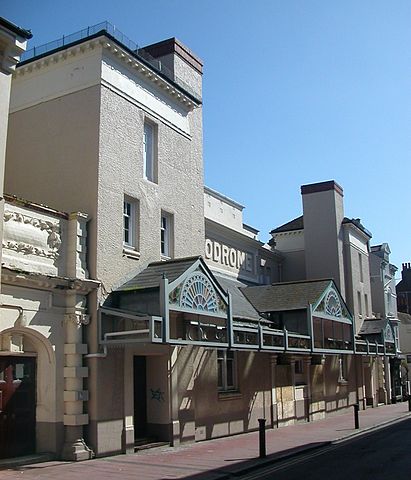 The plans for new multi-screen Brighton cinema have made a hasty retreat after the developer made a swift turnaround on the plan to use a historic venue. Campaigners are now celebrating the dismissal of the plans, which aimed to convert the historic Brighton Hippodrome into a multi-screen cinema and shops.
The plans for new multi-screen Brighton cinema have made a hasty retreat after the developer made a swift turnaround on the plan to use a historic venue. Campaigners are now celebrating the dismissal of the plans, which aimed to convert the historic Brighton Hippodrome into a multi-screen cinema and shops.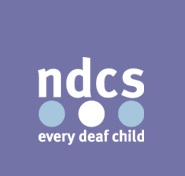 A new competition from the National Deaf Children’s Society – named Raising The Bar – has been announced in order to encourage young deaf dancers and musicians to showcase their performance skills. Entering is simple, just through the NDCS website, and could mean the young artists could show off their talents and attend a masterclass led by successful deaf dancers and musicians.
A new competition from the National Deaf Children’s Society – named Raising The Bar – has been announced in order to encourage young deaf dancers and musicians to showcase their performance skills. Entering is simple, just through the NDCS website, and could mean the young artists could show off their talents and attend a masterclass led by successful deaf dancers and musicians.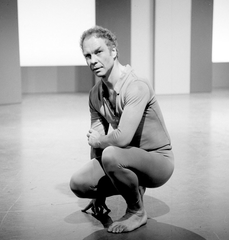 The Merce Cunningham Trust, established in 2000 to further the iconic American choreographer’s legacy, has announced an award of $250,000 to the Baryshnikov Arts Centre, and $375,000 to the Foundation for Contemporary Arts.
The Merce Cunningham Trust, established in 2000 to further the iconic American choreographer’s legacy, has announced an award of $250,000 to the Baryshnikov Arts Centre, and $375,000 to the Foundation for Contemporary Arts.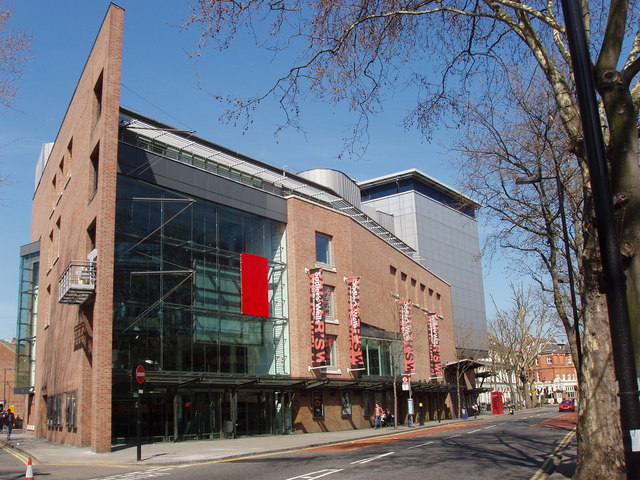 The Sadler’s Wells’ Associate Artists, some of whom will form the upcoming ‘The Associates’ programme, represent some of the most exciting talent in contemporary dance today. For this particular programme at Sadler’s Wells, three Associates will present new and critically acclaimed work in February.
The Sadler’s Wells’ Associate Artists, some of whom will form the upcoming ‘The Associates’ programme, represent some of the most exciting talent in contemporary dance today. For this particular programme at Sadler’s Wells, three Associates will present new and critically acclaimed work in February. Did you make any new year’s resolutions for 2015? Were any to do with dance, and have you managed to keep them? Some long term resolutions for the dance studio, however, may be easier to keep, as they can improve and maintain a good relationship with your teacher and fellow students.
Did you make any new year’s resolutions for 2015? Were any to do with dance, and have you managed to keep them? Some long term resolutions for the dance studio, however, may be easier to keep, as they can improve and maintain a good relationship with your teacher and fellow students.